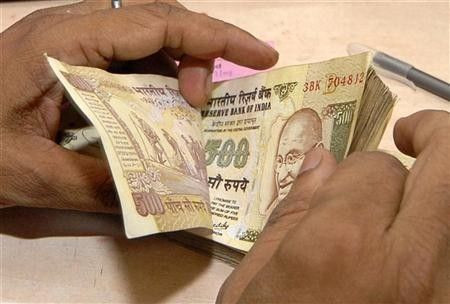Reserve Bank Of India Cuts CRR By 25 Basis Points, Keeps Other Key Rates Unchanged

In a surprise move, the Reserve Bank of India Monday cut the cash reserve ratio (CRR) by 25 basis points while keeping the other key rates unchanged in its Mid-Quarter Monetary Policy Review 2012.
Not many economists were expecting the RBI to change the key rates as the inflation is still above the comfort levels.
In its review meeting held Monday, the RBI cut the CRR by 25 bps to 4.5 percent, a move that will infuse Rs 170 billion to the financial system. However, the repo rate -- the rate at which the RBI lends money to commercial banks -- was kept unchanged at 8 percent.
The reverse repo rate -- the rate at which the RBI borrows money from the commercial banks -- remains unchanged at 7 percent. Also, the RBI hasn't changed the marginal standing facility (MSF) rate and the bank rate, both of which remain at 9.0 percent.
The RBI has said it is leaving the interest rates unchanged as the inflation is still a major concern. The benchmark index went up to 7 .55 percent in August from 6.87 percent in the previous month, much above the RBI's comfort levels. The RBI generally considers a below 5 percent inflation as ideal for monetary easing.
The decision to cut CRR -- the amount of funds that the banks have to keep with the RBI -- came after the government took a series of measures to improve the economy and investor sentiment by allowing an FDI of 51 percent in retail, 49 percent in aviation and 74 percent in broadcasting sectors Friday.
The RBI, under pressure from the industry to cut rates, was asking the government to take reform measures to pull the economic growth which touched a nine-year low in the quarter ending June 30.
"As inflationary tendencies have persisted, the primary focus of monetary policy remains the containment of inflation and anchoring of inflation expectations. In this context, the government's recent actions have paved the way for a more favorable growth-inflation dynamic by initiating a shift in expenditure away from consumption (subsidies) and towards investment (including through FDI). Of course, several challenges remain, one of which is persistent inflation. But, as policy actions to stimulate growth materialize, monetary policy will reinforce the positive impact of these actions while maintaining its focus on inflation management" the RBI said in a statement.
© Copyright IBTimes 2024. All rights reserved.




















